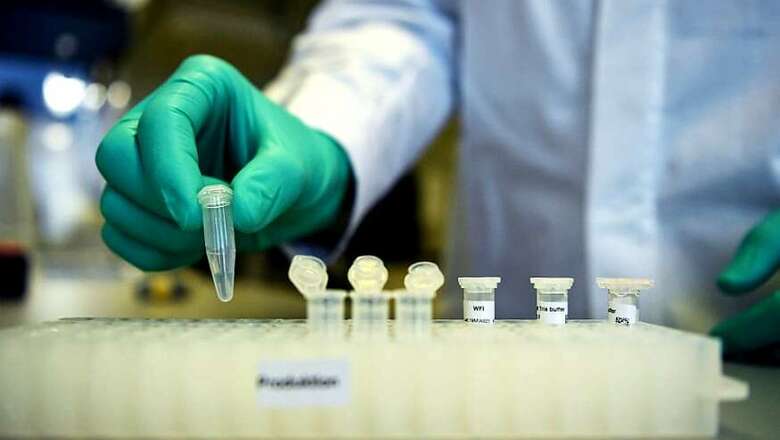
views
A vaccine trial for Covid-19 at the University of Oxford seeks to administer the shot to 500 participants by May, Sarah Gilbert, a professor of vaccinology at the university, has told The Lancet.
Individuals aged between 18 to 55 years are being enrolled in the early- and mid-stage randomized, controlled trial, Bloomberg reported.
“The best-case scenario is that by the autumn of 2020, we have an efficacy result from phase 3 and the ability to manufacture large amounts of the vaccine, but these best-case time frames are highly ambitious and subject to change,” Gilbert was quoted as saying by The Lancet.
Gilbert began her study on vaccines in 1994 at the University of Oxford in 1994. She was given a $2.8 million grant from UK’s National Institute for Health Research and UK Research and Innovation in March to ramp up her team’s attempts to explore vaccine research for the novel coronavirus.
Notably, her team’s experimental immunization was one of the firsts to make to the clinical trials stage. The World Health Organization recognizes 70 vaccine candidates in development, along with three others that are being tested in humans.
The vaccines are CanSino Biological Inc./Beijing Institute of Biotechnology; Inovio Pharmaceuticals Inc.; and Moderna Inc./National Institute of Allergy and Infectious Diseases.
Gilbert’s phase 1/2 study will be dividing the 510 volunteers into groups of five, who will then be monitored for close to six months, with a choice of a follow-up visit about a year after joining the trial.
Of the five groups, one group will be given a second intramuscular shot of the vaccine four weeks after the preliminary immunization.
The research seeks to determine the effectiveness and safety of the potential vaccine, named ChAdOx1 nCoV-19, the report said.
A vaccine against meningococcal disease will be administered to the participants, randomly assigned to receive a placebo for control reasons.
A portion of the clinical research may require to be shifted out of the UK, if the pandemic there goes down to an extent, where the effectiveness can’t be reliably ascertained.
“Our ability to determine vaccine efficacy will be affected by the amount of virus transmission in the local population over the summer, and we are also beginning to think about initiating trials with partners in other countries to increase our ability to determine vaccine efficacy,” Gilbert told the Lancet.
ChAdOx1 nCoV-19 is an ostensible recombinant viral vector vaccine developed from a harmless virus called an adenovirus that has been modified to generate the surface spike protein of the pandemic-causing SARS-CoV-2 virus. The vaccine moves by training the immune system to identify and attack the coronavirus. The vaccine uses the same method as a vaccine Gilbert’s team earlier created for the related MERS coronavirus, which demonstrated great potential in animal and early-stage human testing.
The WHO is creating a platform for everybody creating Covid-19 vaccines to share their plans and preliminary findings, according to Gilbert.


















Comments
0 comment